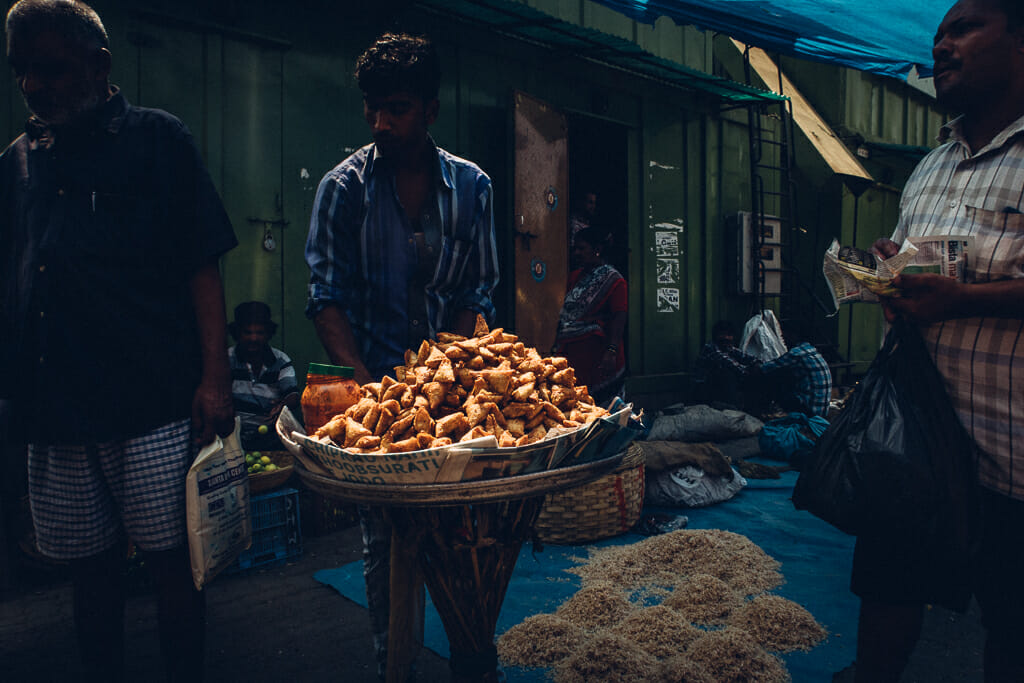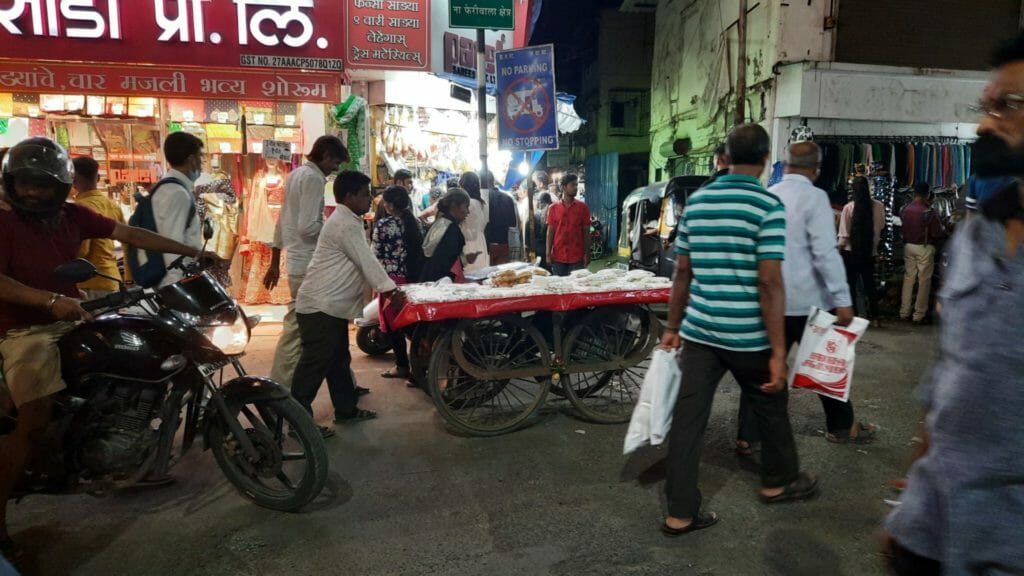The first thing people see after stepping out of the railway station after a long day at work is a row of street vendors. To quench your thirst with nimbu paani or buttermilk, with hot vada pavs for those who want to grab a quick bite, and vegetables neatly sorted into vaatas or portions for those who need enough for one family’s meal and cannot afford a whole kilo.
We stand the whole day or roam around different localities to make a living. A regular day is not smooth sailing, it is fraught with several problems. Society sees our hard work and struggle as a nuisance. But our presence brings in a sea of customers and revenue for the municipality. Yet we have not given up and cooperated with the officials and fought for our rights.

Street vending regulations in Mumbai
When the Central government passed the Street Vendor Act, we appreciated the move to recognise street vendors as an integral part of city planning. But we opposed the scheme passed by the Maharashtra state government. The Bombay High Court set it aside in November 2017 as it was not following the Street Vendors Act Schedule II.
We wanted all the street vendors in the city to be surveyed and only then for Central and Zonal Town Vending Committees (TVC) to be formed. Once the TVCs were formed, the creation of vending zones and registration of street vendors would be possible as per the provisions of the Act.
Despite this, Brihanmumbai Municipal Corporation (BMC), in December 2017, called upon all the trade unions and granted us responsibilities in each of the nine administrative zones. Hawker unions objected to this exercise and declared it illegal as we were not elected members of TVCs. Such arbitrary decisions show that the authorities care little about following due process and do not believe in transparent and democratic decision-making.
In 2018, the BMC published a list of 85,000 hawking pitches with demarcated vending zones on its website. It solicited citizens’ opinions instead of discussing the matter first with Central and Zonal TVCs. The list faced severe opposition from some civil society organisations (CSOs).
Read more : On BMC’s ‘eligible’ list, why are hawkers in Mumbai still evicted?
Some organisations take anti-street vendor approach
It was the same set of CSOs that filed objections against the vending zones decided on 85,000 roads. Residents see the presence of street vendors as a nuisance and want them to be evicted.
This forced the Municipal Commissioner to cancel the plan and order a fresh survey. This time involving elected representatives. The zones we were told to move to were either near nalas (gutters) or remote areas completely inaccessible to customers. As we were not consulted during this process, we again opposed it vehemently.
TVCs nominated but only on paper
We informed the BMC that unions must be a part of the decision-making when zones are approved, as the TVCs have been created for this purpose. TVCs also have BMC officials, police and NGOs. We would have appreciated the inclusion of all the nominated members in this consultation process. Despite our objections, we were not heard, as street vendors are not a majority in the TVCs.
If the vending zones are to be decided behind closed doors without asking us, then why form TVCs? Our representation has been only in name. This is why the state government is in no hurry to pass a fresh Scheme for street vendors. These can allow for the democratic functioning of TVCs as per the Street Vendors Act.
Scheme not implemented to allow big competitors to flourish
Apart from handing over land to real estate developers, the state wants to ensure big supermarkets, retail chains and delivery apps flourish. These companies have been trying to capture the market through government assistance, loans and heavy discounts on products. Our business will die a quick death from competition from such retail outlets.

All hawker’s unions prepared a draft scheme for the government to consider but the state government is not interested in it. We suggested several spots close to stations and existing markets, the majority of which are municipal land. But this proposal has been put in cold storage and the spots are now under the control of the builders. The shops that have sprung up at these spots now call the shots on whether street vendors can set up their stalls and where. A huge mafia undertakes this operation and street vendors have no choice but to cooperate, or else risk losing all rights to vending.
Read more: A ‘hafta’ system haunts hawkers in Mumbai
Instead of considering our proposal, the state government wants to refurbish the old scheme that was quashed by the High Court. Elected representatives will also participate in this process.

Demands of street vendors today
The needs of the common people must be included while designing such vending zones. We want the judiciary and government officials to think about street vendors and other poor vendors first.
We want street vendors to become organised. Only then can they escape the trap of the contractors who extort money and exploit them. Therefore, the government should introduce a scheme that recognises the valuable contribution of street vendors. Members of committees should be elected and not selected. Recognising natural markets is also important to ensure there is ease for both consumers and vendors.
We want recognition, our right to livelihood and social security benefits for our contribution to the city. To make cities smart, we must plan them better. We need to improve the existing infrastructure according to the needs of the people. We, the street vendors are an essential part of the city.